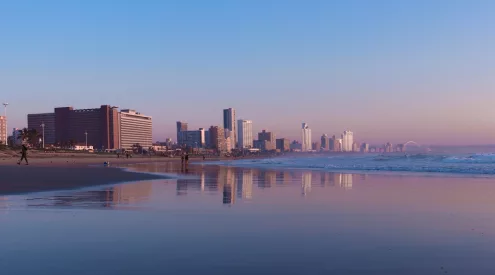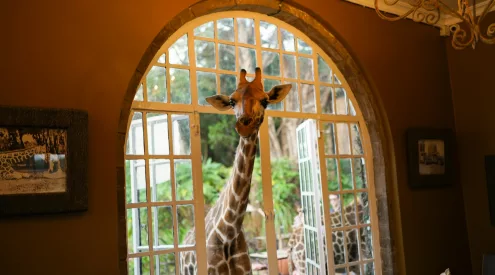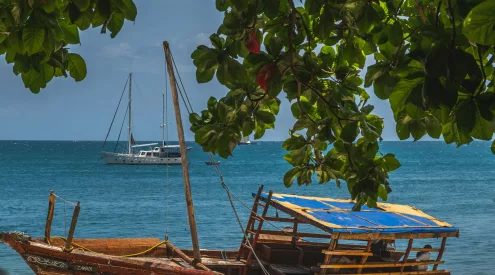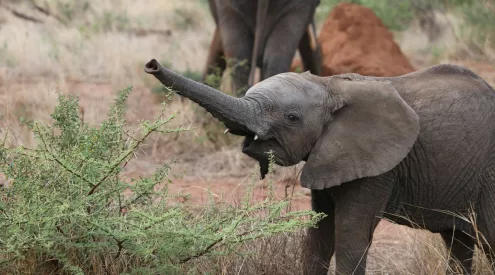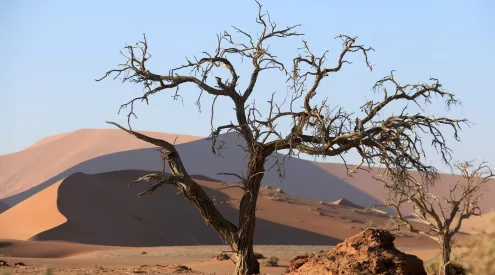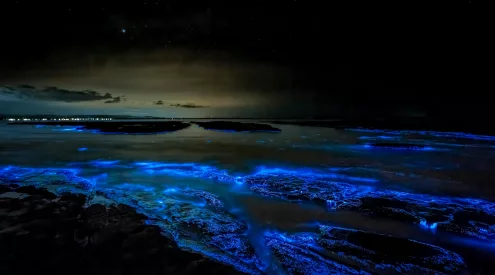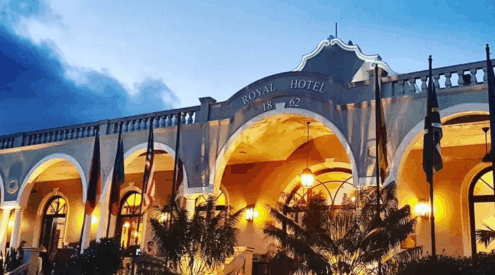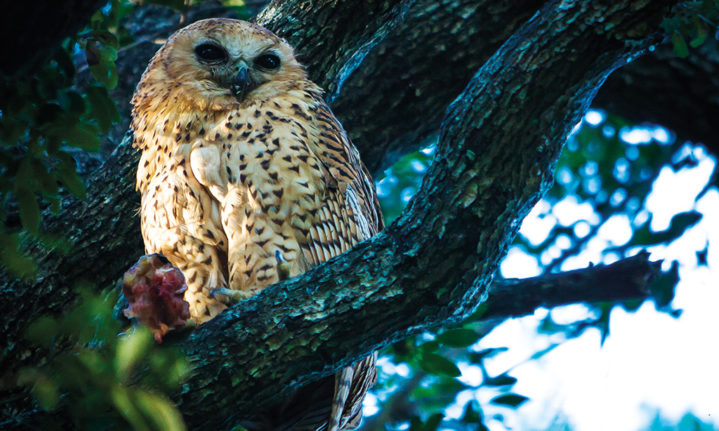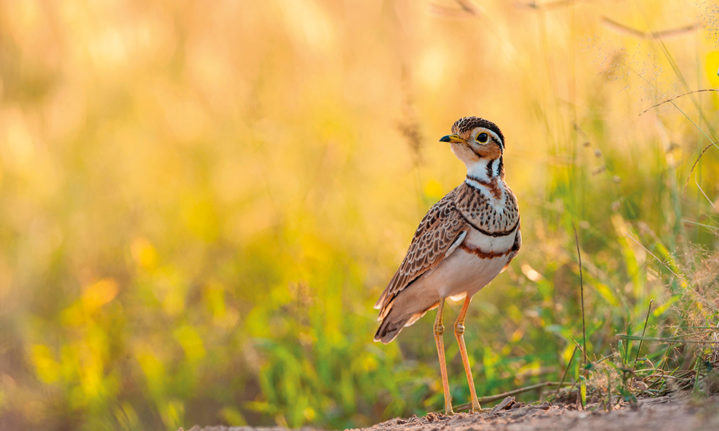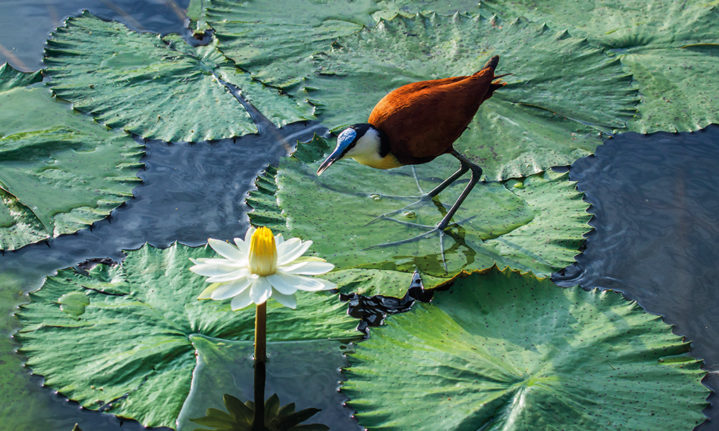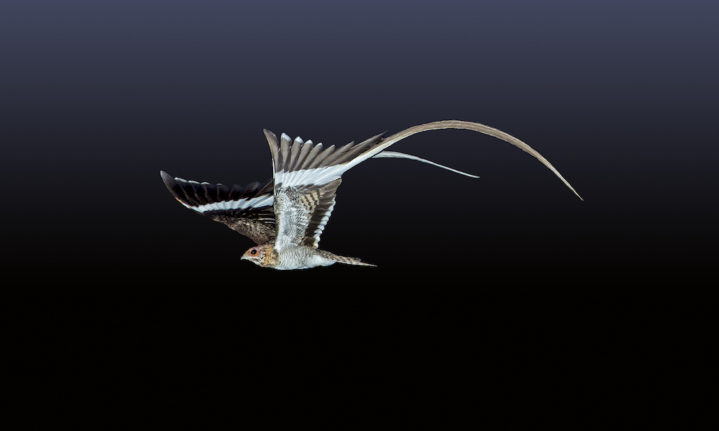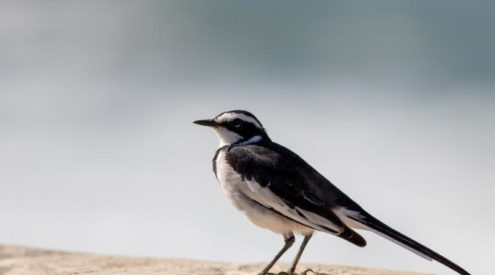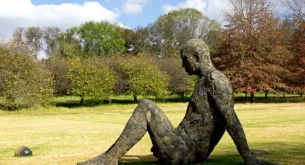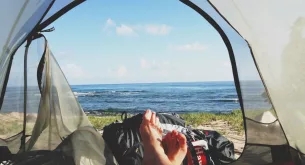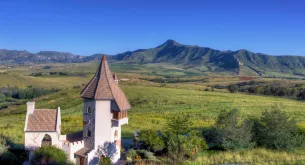If the mere mention of a pennant-winged nightjar, Rudd’s apalis or three-banded courser gets you all twitchy, this is the trip for you.
Words: Robert Ingle
Photography: Robert Wienand, Arno Pietersen, alamy, gallo/ gettyimages

Photo: Robert Wienand
It’s mid-afternoon, the summer heat and humidity are stifling and you’re having trouble staying awake as your game vehicle ploughs through the grasslands of the Kruger National Park. But it’s understandable. Especially if you happen to be a participant on an Extreme Birding weekend at Punda Maria Camp. Now in their 23rd year, these weekends form part of a programme run across Kruger every January and February by the West Rand SANParks honorary rangers. They are a fantastic opportunity for birders to tick off some lifers with the help of South Africa’s top birding guides, interact with the rangers who work in Kruger, and visit parts of the park not normally accessible to visitors. Best of all, profits from these weekends are used to fund conservation activities in the park, with a focus in recent years on anti-poaching activities.
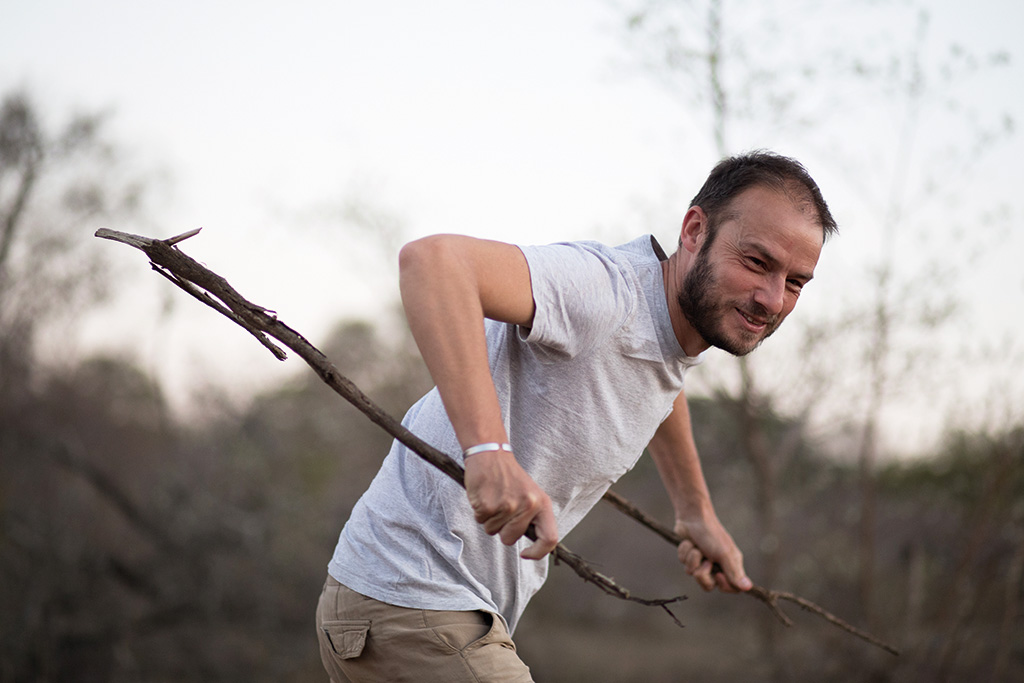
The author conjurs the pennant-winged nightjar with his signature dance – it works every time.
The Extreme Birding weekends at Punda Maria are particularly popular, and fill up within minutes of bookings opening, as they offer the only chance of seeing some Kruger specials which are not found elsewhere in the park. The stars aligned for me when the wife of a birder I’d met had to pull out and I arrived at Punda Maria with a sense of great anticipation. The name is no exaggeration: this is hardcore birding and you’ll spend many (but enjoyable) hours out in the bush.

A resident Pel’s fising owl can sometimes be seen in the trees along the Luvuvhu River – listen out for it’s haunting call in the dark hours
The weekend starts with an evening drive where you’ll get to meet your fellow teammates, for not only is this extreme birding, it’s also competitive, with prizes on offer for the team that spots the most species. The main target bird here is pennant-winged nightjar and we managed a quick glimpse while enjoying sundowners in the warm sand. After one of the quickest braais I’ve ever been to, it was off to bed to try and catch a few hours of sleep before the big day. Although the official leaving time from camp was 2am (bad enough), our guide decided we should leave at 1.30am to steal a head start on the other teams. We duly assembled bleary eyed at the designated time – when no sane birder would be out and about –only to discover that all the other teams had had the same idea.

Three-banded coursers are rarely seen in the north of Kruger during daylight hours.
A 90-minute drive under spectacular starry, and surprisingly chilly, skies took us to the Luvuvhu River Valley where it was still pitch black with little sign of any birdlife. However, a short drive north of the river provided one of the highlights of the day with a three-banded courser giving great views in the road. This is a species restricted to the far north of Kruger which eludes many birders due to its nocturnal habits. Returning to the river it was still dark and so our guide decided we should search for Pel’s fishing owls along the road to Crook’s Corner. Having looked in vain for this species in this area many times before, I didn’t have high hopes but as we sat under a tree admiring an indignant looking Verreaux’s eagle owl who was less than pleased to see us, a ghostly wail was heard from the riverbed. A quick pivot with the spotlight revealed a Pel’s in all its glory sitting out in the open on a fallen tree – pure birding magic.
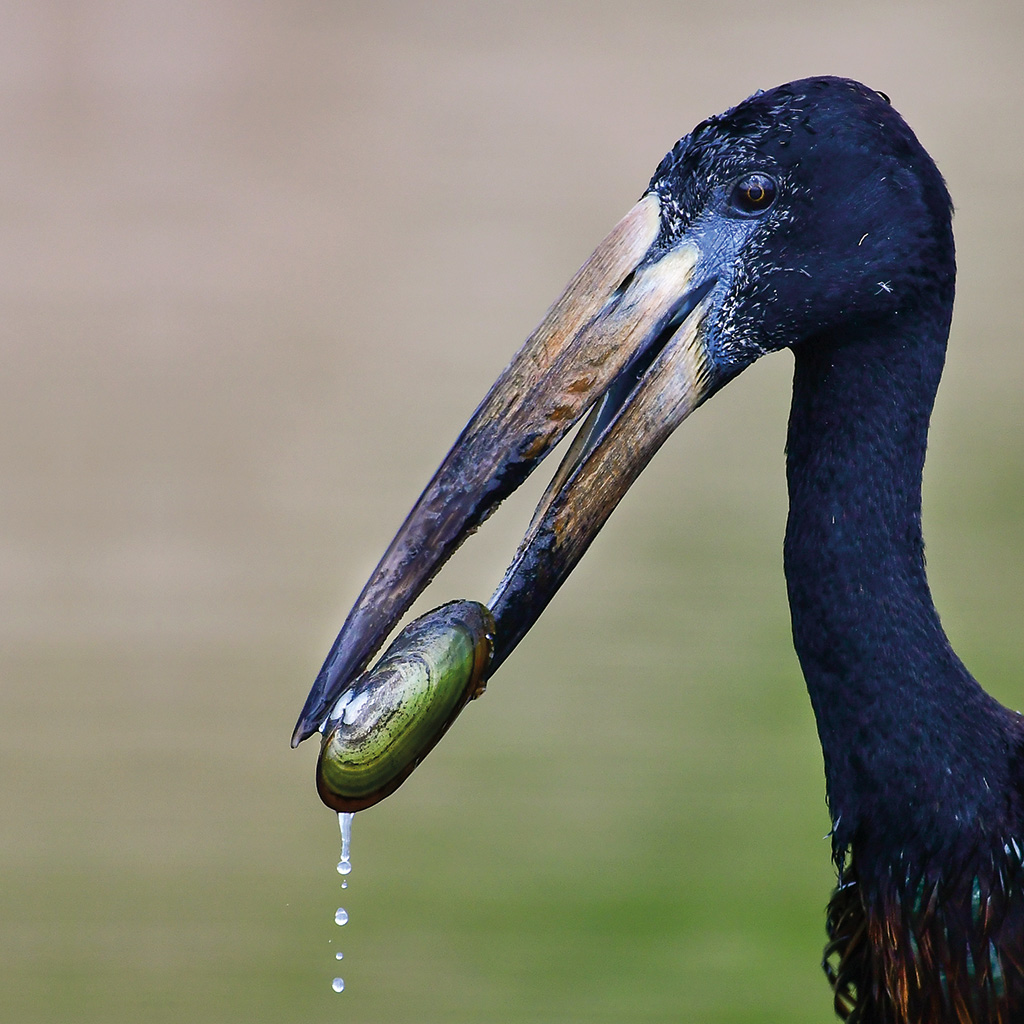
African openbill storks use their peculiar beaks to pry open shells. (Photo Arno Pietersen)
A sunrise breakfast was taken at a birdsong-filled Pafuri picnic site, much to the delight of the local monkeys who normally have to wait several hours longer for their first victims to arrive. We then headed south along the management track which runs along the border with Mozambique. While slow going, this offers both panoramic views and access to the Nwambiya Sandveld which hosts several species that are not found anywhere else in Kruger, including Rudd’s apalis and pink-throated twinspot, both of which duly performed for us. Lunch was at an ephemeral pan where we were entertained by the sight of a large flock of African openbill storks circling overhead before coming down to search for molluscs. These birds always look awkward since their beaks don’t close properly. Meanwhile lesser moorhens were noisily sputtering away, sounding like car engines struggling to start, and the obligatory African jacanas stepped daintily between lily pads while bee-eaters hunted overhead, a magical scene.
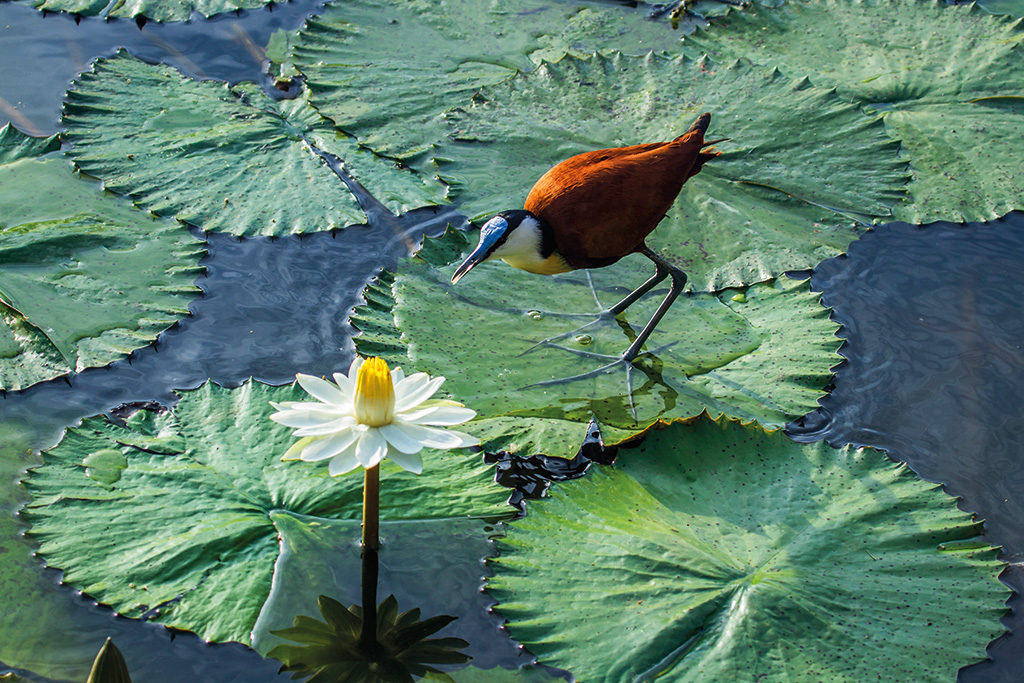
An African jacana’s long legs help spread its weight over lily pads so it can walk across water; southern carmine bee-eaters make their way to Kruger in the summer, a colourful delight as they catch insects in flight.
I won’t lie, the long hot drive through the grasslands in the afternoon is soporific and the lunchtime beer, while very enjoyable, may not have helped. I duly nodded off for a while and woke up to the sound of a small dog barking which was very confusing. However, it was no canine but a male dwarf bittern displaying at the top of the bush – yet another lifer for the day. Back at camp we enjoyed a slap-up meal, the prize giving competition (where our almost 200 species still weren’t enough to clinch the top spot), numerous toasts to celebrate the various lifers seen and then a collapse into bed.
A word of warning: hairy mammals are very much secondary on these weekends. If they happen to be in the background, fantastic, but they are not the focus – though we did stop for almost 60 seconds to look at a pair of lions. These well-organised weekends are definitely aimed at birders who will no longer have to feel guilty about stopping a game vehicle to look at small nondescript birds. Superlative birding in spectacular surroundings, and best of all… you’re helping to protect the park and its wildlife.

Another summer specila in Kruger is the delightful dwarf bittern.
There will be a Kruger Bird & Wildlife Challenge next year, from 12 to 19 February 2023. Find out more here or email Norma Gardiner at [email protected] about other upcoming Extreme Birding weekends.

